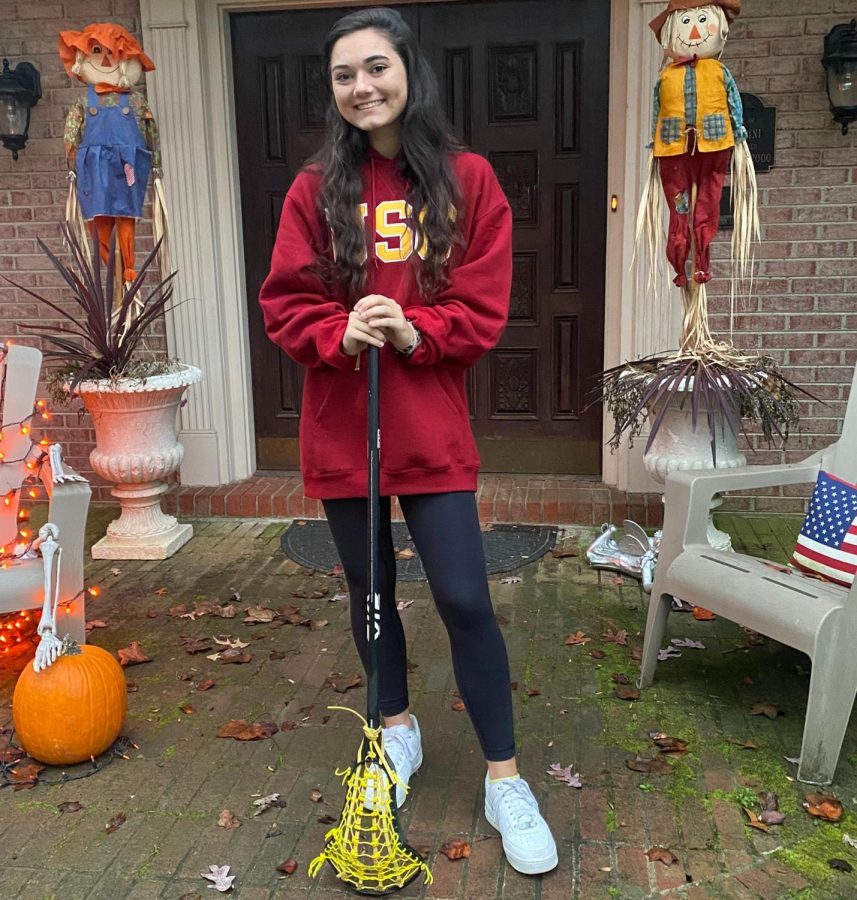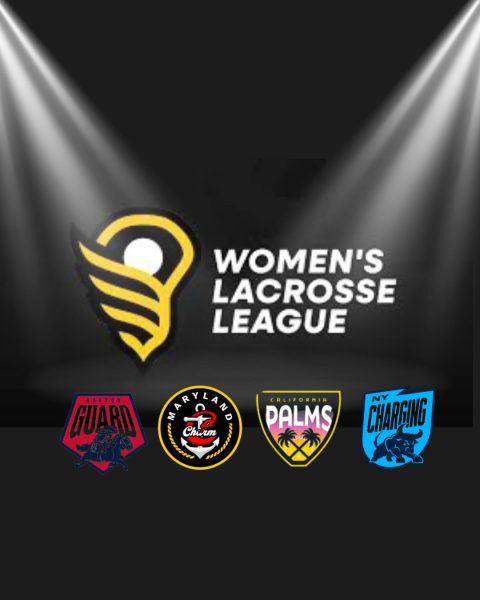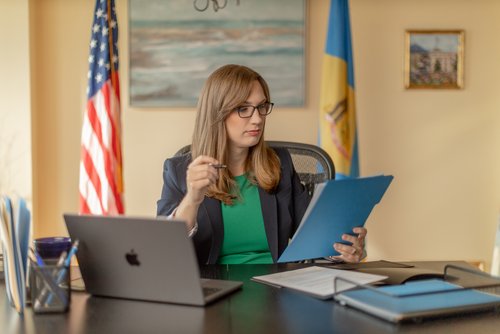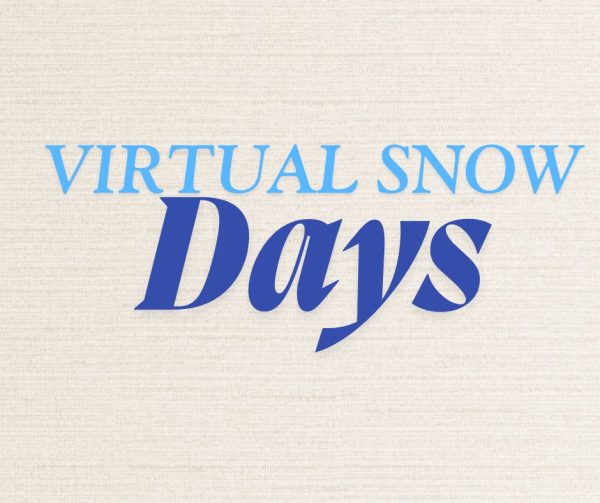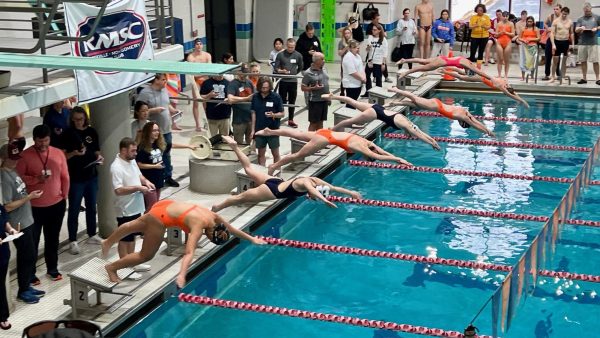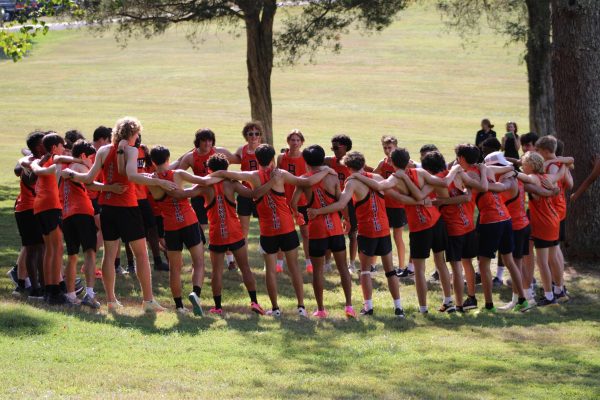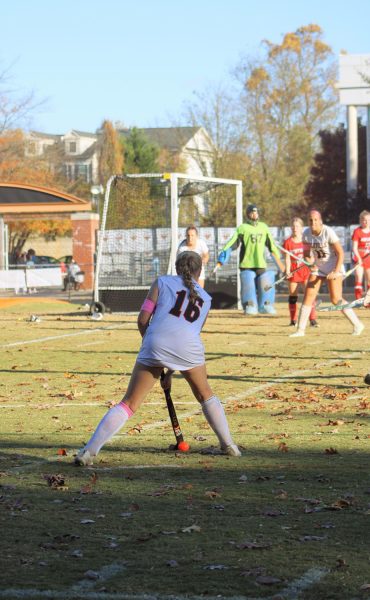Student Athletes Struggle with Extended Dead Period in 2020
Photo Courtesy of Ava Albertini
Junior lacrosse player at Bullis School, Ava Albertini recently committed to the college of her choice, in spite of the extended dead period.
Virtual learning has been a nearly year-long challenge for RHS students, but for high school athletes hoping to play at the collegiate level, its impact on recruiting has been especially frustrating.
Many junior and senior athletes have started the college recruiting process, but haven’t been able to follow the traditional pathway set by the generations of athletes who have come before them. This typically includes trading e-mails, phone calls and having face-to-face meetings with college coaches and scouts.
Due to the COVID-19 pandemic, the NCAA has implemented an extension of the time period a college coach and student athlete are prohibited from communicating. In college recruiting parlance, this is known as the ‘dead period,’ which strictly prohibits coaches from meeting face-to-face with college-bound student athletes or their parents. In addition, they may not watch them compete or visit their high schools.
Dead periods differ for each sport, but are typically around the early signing time and regular signing time. Due to COVID-19, this year’s dead period began May 26 and was extended to Sept. 21.
“It’s frustrating, because I’ve been waiting and training all my life so coaches could come and see me play, as well as reach out, and this year I had to wait even longer for that to be possible,” varsity soccer player Emilia Webb said.
Instead, student athletes are being forced to find new ways to grab the attention of college coaches at the college of their choice.
Compounding the issue is how there have also been no meaningful competitions by high school sports teams. This affects how student athletes approach colleges and universities who are hoping to take their skills in athletics to the collegiate level.
Junior Ava Albertini attends the Bullis School in Potomac and has gone through the recruitment process already. She was able to commit to her college of choice, but not easily, she said. To compensate for the extended dead period, aspiring collegiate athletes like Webb and Albertini sent highlight tapes to a range of coaches. However, that isn’t always the best option, athletic director Mike Hayes said.
“Highlight tapes are decent to have, but college coaches want to see the players in person. The highlight tapes only give a small snippet of what the colleges are looking for,” Hayes said. “College coaches don’t know much about the opponent and don’t get to learn about the student’s personality.”
Albertini echoed Webb’s frustration with being unable to talk to coaches or invite them to games.
“I had to send in my highlights, but I had to make the video myself. I am not an editor, so I just had to try my best and send in what I could with hopes they’d like what they saw,” Albertini said. “Although they want to see the highlights, the production of the tape must be good too. I tried to make it as helpful for the coaches to see me as possible.”
Luckily, the dead period has not largely affected scholarships. Albertini says that if an athlete really wants to play in college, they will find a way to no matter how stressful the process can be.
“The people that don’t get scholarships are the ones that give up on recruitment just because of a bump in the road.”
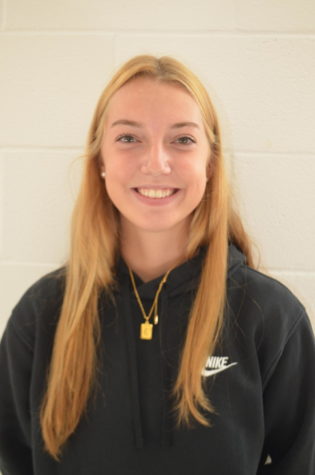
This is senior Elizabeth DiFonzo’s first year as an Editor-in-Chief for the Rampage after being a Sports Editor for two years. This is her fourth year...


